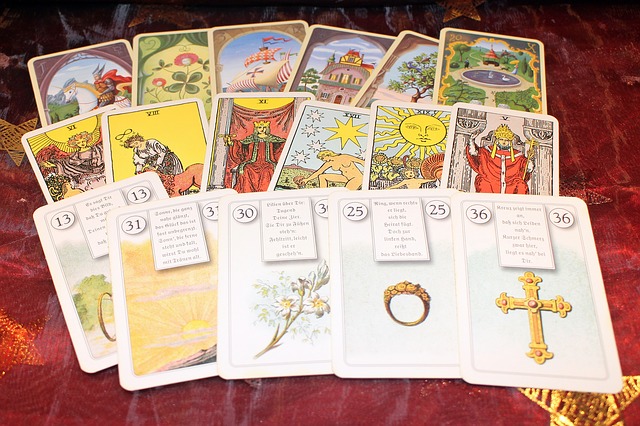Fraud is considered an act of wrongful or criminal deception intended to result in financial or personal gain. In 1792, just a few years after America officially became independent, the country experienced its first fraud. Perhaps unsurprisingly, some of the oldest scams in history are still being used on people today. These ancient cases of fraud, still practiced today, negatively affect families financially as well as mentally. Sadly, it is also used to scam other people. In 2017, the FBI received over 300,000 complaints about Internet scams. They also reported that victims lost over $1.4 billion in online fraud. These fraudulent companies pressure homeowners to take out equity to use as payments for repairs or other house expenses. Unfortunately, there have been many reported cases of scammers preying in funeral homes. They often claim that the deceased had an outstanding debt that must be paid immediately or they inflate funeral costs and sell unnecessary services. Fraudsters take advantage of victims by posing as a financial advisor to get access to their retirement funds and savings. Once they have the money, they take it and run. Scammers target the elder community by selling them products that claim to help conceal their age. These anti-aging products are often completely worthless or filled with harmful chemicals. The game is based on a simple sleight of hand. The operator throws either of the two cards held in one hand. The illusion created is that only the bottom card is ever thrown. However, the top can be dropped in an identical manner to change the outcome. People have been losing money to three-card monte scams for over a hundred years. They are supposed to hold the money until the deal closes. However, when it comes time to sign the paperwork, the real estate agent is nowhere to be found and the victim’s money is gone. Scammers often pose as a short-term online credit company as a way to get valuable information. Criminals also try stealing people’s identities by calling their homes and workplaces. They pretend to be the IRS and then ask for their bank account information and routing numbers. The scam is usually run by two operators. The first operator joins the game along with the victim. Then the second operator joins shortly after and proceeds to lose the game. After threatening to call the police, they convince the victim to pitch them hush money, which the two operators later split. Then the customers are tricking into paying more money in return for poor services, or nothing at all. Some bars have also been found guilty of watering down alcoholic drinks or charging highly inflated prices. Ponzi originally collected more than $8 million from about 30,000 investors in just seven months. He lured investors with funds from more recent investors, which led the investors to believe that more profits were coming. Then in 1872, Congress enacted the Mail Fraud Statute to combat a post-Civil War outbreak of scams and swindles using the United States Postal Service. Unfortunately, criminals continue to use mail services to carry out scams … often from hundreds of thousands of miles away. They would then send these bills to upscale restaurants and hotels, claiming that the victim’s restaurant spilled food, coffee, or wine on a guest’s expensive suit. Since the dry-cleaning bills were usually modest, the restaurants and hotels would usually pay it with no questions asked. Victims would often respond to the flyers and travel to the location to complete the transaction. Upon arrival, the victim would be shown a bag of genuine currency. However, while the victim was distracted, the bag of money would be switched out for a bag of sawdust, green paper, or other worthless items. The fortune-teller informs their client that he or she is cursed and that the curse can only be broken after paying a large fee. Once the fee is paid, the fortune-teller usually does a fake spell over the person, supposedly setting them free from the curse. A scammer will call an older person and say, “Hi Grandma, do you know who this is?” When the grandparent guesses the name of the grandchild, the scammer will take on that person’s identity. The scammer will usually ask for money to solve some unexpected financial problems. The grandparents usually don’t ask too many questions before sending money via Western Union or MoneyGram. They would do this to give the appearance that the land or mine was rich in natural minerals. Some of the more famous salting mine scams included the Diamond Hoax of 1872 and the Bre-X gold fraud of the mid-1990s. With these financial legal scams, a person will pose as a lawyer and will advertise services they are not qualified to offer. Once an agreement is signed, the client will be forced to pay whatever the posing lawyer asks for. The criminals usually find their victims on dating apps or on social media. Once they grow a connection and are comfortable with their victims, they usually start asking for money. They will often say they need the money for medical expenses or to help them get out of a bad situation. Some job scammers ask their victims to pay for their background reports or training, while others simply ask to have money wired to them or ask for their credit card information. The document usually informs the person that they are going to receive a large inheritance; however, they must first send a sum of money to cover the administrative fees. The person getting scammed sees the fee as a modest amount compared to the large sum of money they are going to receive. Over the years, thousands of people have been scammed by these fake inheritance notices. In 2015, Eddie Tipton was convicted of rigging over $14.3 million from MUSL’s lottery game, Hot Lotto, in Iowa, Colorado, Wisconsin, Kansas, and Oklahoma. In 1889, a nicely dressed man showed up at a farm offering to buy a good horse. He promised to give $10 for the horse that day and $25 more a week later. The next day another gentleman strolled up asking for the same horse but offered to pay an extra $25 for it. The farmer agreed. When the first man returned for the horse, the farmer gave the first gentleman his money, plus an extra $10 for his troubles. The second gentleman never returned for the horse and the two gentlemen split the swindled money. In 1888, a man introduced himself as Father McCarthy of Montreal to a head priest in Washington, D.C. Later that day, McCarthy went down to the local jewelry store to look for a gift for the cardinal. He asked one merchant to bring a few diamonds over to the chapel where he was staying. When the merchant arrived with the goods, McCarthy asked if he could take the diamonds to another room to show other holy men. Instead, he slipped out the back door, never to be seen again. In modern times, the Disappearing Act could be considered any form of retail theft. Approximately $35 million worth of retail goods is stolen from retailers each year, according to NASP.























































